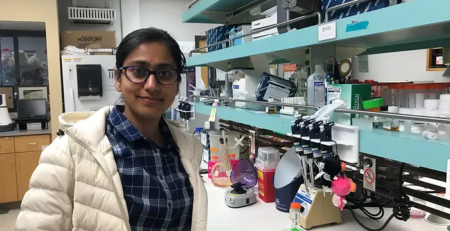Baskar Bakthavachalu, Senior Scientist at TIGS, was awarded the Wellcome Trust DBT India Intermediate Fellowship for his work on the role of Ribonucleoprotein granules in neuronal function and neurodegeneration using Drosophila as a model organism. RNA granules are dynamic, cytoplasmic assemblies that provide microdomains for intracellular mRNA regulation. Several RNA binding proteins contain intrinsically disordered regions (IDRs) capable of promoting irreversible protein assembly in vitro and in vivo. These protein aggregations are commonly observed in neurodegenerative conditions. Gain-of-function mutations in the IDRs have been shown to be associated with many forms of neurodegenerative disease, in particular, amyotrophic lateral sclerosis (ALS).
Related Posts

Sustainable Agriculture and Gene Editing Technologies
By Dr Deepak Pental, CSIR Distinguished Scientist and former Vice-Chancellor, University of... read more

On the path to global food security
Our success story began with agriculture. Organized farming enabled us to feed... read more
Pawan Kumar, a farmer from Karnataka, speaks about his challenges, on Kisan Diwas, 23 December 2020
Kisan Diwas or National Farmers’ Day is observed on December 23, the... read more

Baskar Bakthavachalu receives the SERB-STAR award
Dr. Baskar Bakthavachalu, Senior Scientist, Tata Institute for Genetics and Society, Bangalore,... read more

Pankaj Gupta receives The Wellcome Trust/DBT India Alliance IRMI travel grant for INORMS 2020
Pankaj Gupta, Program Manager at TIGS, received a travel grant to participate... read more

Wastewater epidemiology – The Bengaluru Story
Wastewater epidemiology is an approach where the wastewater generated by humans is... read more

Venkata Sresty Tavva talks about new approaches in plant genetics research and their significance in improving food security
Dr. Venkata Sresty Tavva is the Group Leader of the Plant Genetics... read more

Harvinder Khera wins Awsar Award for Popular Science Story
Harvinder Khera, Research Scientist at TIGS, won an Awsar Best Story Award,... read more



